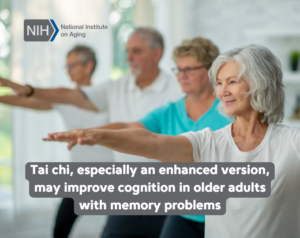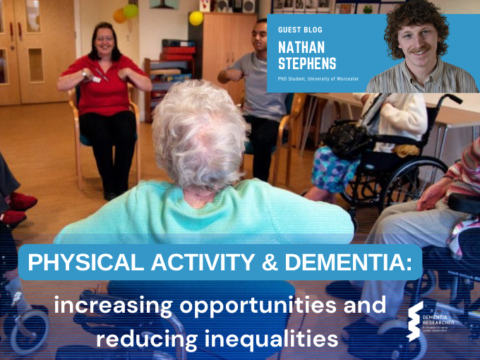
An innovative form of tai chi that combines mental puzzles and challenges with the traditional physical movements improved cognition in older adults with mild cognitive impairment. The results of the NIA-funded study were published in Annals of Internal Medicine.
An NIA-funded study found that a form of tai chi that combines mental puzzles and challenges with traditional physical movements improved cognition in older adults with mild cognitive impairment.
The study divided 304 participants with mild cognitive impairment into three groups and provided them with a virtual exercise class in their homes for six months. One group did stretching exercises only, the second did a traditional form of tai chi, and the third group did a cognitively enhanced tai chi program. The cognitively enhanced tai chi included having participants spell words forward and backward.
The study found that both tai chi groups showed improved cognitive test scores compared to the stretching-only group. The traditional tai chi group raised test scores by 1.5 points, and the cognitively enhanced tai chi group boosted scores by almost three points. The study did not include a control group, and more research is needed, however investigators see these findings as promising evidence that tai chi, especially the cognitively enhanced version, may be an affordable intervention option for people with mild cognitive impairment.
Learn more about this NIA-funded study.
Reference: Li F, et al. Clinical effectiveness of cognitively enhanced tai ji quan training on global cognition and dual-task performance during walking in older adults with mild cognitive impairment or self-reported memory concerns: A randomized controlled trial. Annals of Internal Medicine. 2023;176(11):1498-1507. doi: 10.7326/M23-1603.

 Print This Post
Print This Post




